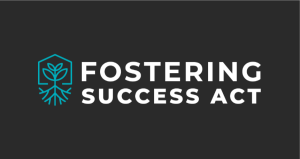State Removes Limits on Donations/Tax Credits Helping Kids Aging Out of Foster Care
 Following up on a news brief aired last week, limits on donations to a state tax credit that supports foster children aging out of the system were eliminated effective last week.
Following up on a news brief aired last week, limits on donations to a state tax credit that supports foster children aging out of the system were eliminated effective last week.
About 700 young Georgians age out of the foster care system each year, most with no family to return to after they leave the system. Data from numerous studies shows most who leave foster care end up homeless, in chronic poverty, in jail, or become victims of human trafficking.
The General Assembly created the foster-care tax credit last year with a $20 million cap. In its first year, the program raised almost $11.6 million.
In the first five months of this year, the program raised less than half a million in pre-approvals, according to the State Department of Revenue.
At a news conference held earlier this month at the Georgia State Capitol, Heidi Carr, executive director of Fostering Success Act, Inc., urged taxpayers to step up, saying “It is critical to support youth aging out of the system, because these young adults often lack the support needed to create a clear path for success,” she said. “Most will end up on the street with no family, no job, no education and no hope, but we can change this outcome by helping to remove barriers.”
Because the program had not reached its cap in the first half of the year, the individual cap limits were lifted this month to help reach the annual program max of $20 million in tax credits. Restrictions were lifted on July 1 – a feature built-in to the program and happens annually if the tax credit max hasn’t been met by mid-year.
From January 1 to June 30, individual filers had a $2,500 limit. Married couples filing jointly, limited liability companies, small business corporations and partnerships had a $5,000 limit. Larger companies and trusts could give up to 10% of their Georgia tax liability. These limits were lifted on July 1 for the remainder of the tax year through December or until the program reaches its $20 million annual goal.
Carr stated, “Every Georgia taxpayer, whether a business or an individual … should see this as a no-brainer to either eliminate or greatly reduce their state income taxes. At the same time, their tax credit donation will not only save lives but save more tax dollars in the long run by keeping these youth off the streets, out of jail, and out of poverty.”
FSA is one of the foster-care support organizations authorized by the state to work with the impacted young people.
FSA and other nonprofits use the proceeds from donations to the program to provide foster youth who age out of the system medical care, counseling, food, car repairs and housing, as well as aid for high-school GED programs and tuition to pay for vocational or college courses needed to complete their education.
